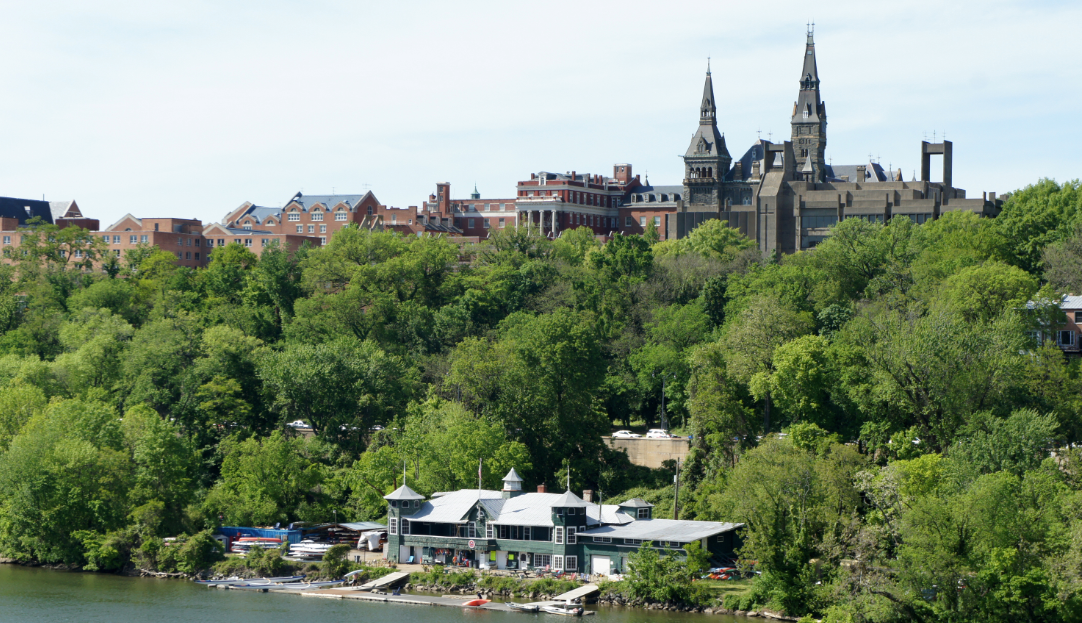Students Advance Recycling, Compost and Waste-Reduction Solutions
Calls for a Reduction of Waste
The Global Footprint Network estimates that by 2020, human use of natural resources is anticipated to exceed the Earth’s regenerative capacity by 75 percent. In addition, a new report by Accenture Strategy estimates that the economic potential of these wasted resources will add up to $4.5 trillion by 2030. Embracing the call to action, during the 2018-2019 school year, student interns working in the Office of Sustainability (OOS) tackled three initiatives to reduce the amount of waste sent to landfills.
Single-Stream Recycling Pilot

The first project was to roll out a single-stream recycling pilot in select buildings on campus. Under a single-stream system, all recyclable materials are placed in the same bin, with the exception of corrugated cardboard. This reduces confusion about what is recyclable and leads to less contamination in the recycling. The pilot program, begun in the Southwest Quad (SWQ) and Village A residence halls, features three main components: bin relabeling, collaboration with custodial staff, and resident education.
After relabeling the Village A and SWQ recycling and trash bins, we sat down with custodial staff to discuss the pilot and provide training on the new system. After this, we worked with Residential Living to deliver educational programs about how to properly sort recycling under a single stream system. This included creating a bulletin board on single stream recycling for SWQ living spaces, as well as planning an Eco Week in April, featuring a variety of sustainable events like a gardening workshop and a vegetarian cookout.
Only a few months into the pilot, student residents report that the single-stream program is simpler, and visual audits suggest a decrease in contamination.
Leo’s Post-Consumer Compost Pilot

The second project was a pilot program for a new post-consumer compost system in Leo’s Market, the retail and take-out portion of the main student dining hall. Over two semesters, interns collaborated with Hoya Hospitality, Auxiliary Business Services, and Facilities Management to introduce compostable straws, containers, and utensils. In addition, we conducted two sets of audits to monitor levels of contamination, and created educational materials to teach students how to properly sort compostable waste.
Through these audits, we were able to identify obstacles for a long-term solution, including contamination. We discovered some contamination within the compost, and determined that more education needed to be done to create awareness about composting on campus. Therefore, we organized student volunteers to sit by the bins and instruct their peers on what is compostable and to which bin it belongs. Furthermore, we clarified the signage on the bins and created informative posters about the compost pilot.
Plastic Free Pledge
Third, we collaborated with the Georgetown University Student Association (GUSA) to run a “Go Plastic-Free” campaign dedicated to engaging the University community in reducing their personal use of single-use plastics. The main goals of the pledge were to incentivize individual students and student-run clubs to commit to reducing their plastic waste by making a pledge, undergoing training, and receiving tools and incentives to make it easier to use less disposable plastic in their daily lives.
We distributed reusable utensil sets to every student who signed the pledge. In addition, nearly twenty student organizations engaged in training sessions on how to reduce the use of plastic in their events. Us interns worked with GUSA to run these training sessions and engage with the student organizations. Ultimately, over 400 Hoyas signed the pledge!
Concluding Thoughts
These projects not only reduced Georgetown’s waste-production, but also generated a greater awareness on campus of the ways in which students’ actions can make a difference. We are extremely proud of the work our team has done to achieve these goals and look forward to seeing our community take even more steps to increase the regeneration and reuse of our resources.
Blog post by Caroline Flibbert (COl ’21) and Karolina Kvakova (MLASP ‘20) Office of Sustainability Leads Interns, 2018-2019 School Year
